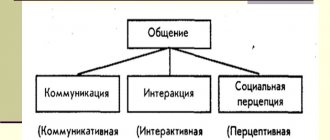- Pedantry
- Perfectionism
- Differences between concepts
- General characteristics
- Conclusion
There are similarities between them, but there are more differences. A pedant and a perfectionist, the difference between which not everyone knows, are two different concepts. The main difference is that pedantry is a character trait, and perfectionism is a mental disorder.
Pedantry is a common, intentional behavior. With perfectionism, the desire to do everything perfectly is practically uncontrollable.
Concept
The word pedant means “teacher” in French. The term migrated into Russian vocabulary during the era of popularity of tutors from France. The original meaning of the word is a picky teacher, a mentor who demands strict adherence to formal order.
The Italian language also has the word pedante, meaning a teacher, scientist, book reader who does not want to know anything other than his science.
Today, pedantry is considered to be a quality of a person’s personality, which endows him with extreme precision and accuracy in actions, as well as a tendency to strictly adhere to formal rules and requirements.
In simple words, a pedant is a person who is extremely attentive and meticulous to little things, is endowed with punctuality, and may seem picky and meticulous.
An entire nation can be cited as an example: you have probably heard the expression “German pedantry.” There are legends about this quality of German residents: Soviet front-line soldiers said that during the Great Patriotic War they could set their watches based on enemy artillery shelling.
Tourists returning from Germany never tire of sharing funny stories about pedantic Germans who hang their washed clothes strictly according to size, maintain perfect order not only at home, but also on the streets, and do not even come to visit their parents without a prior invitation. German goods are also considered an example of impeccable quality.
General characteristics
A pedant and a perfectionist puts a lot of effort into making sure the result lives up to expectations.
Other similarities:
- increased level of anxiety;
- lack of flexibility, inability to adapt to dynamic conditions;
- prolonged experience of a traumatic situation;
- tendency to depression and nervous breakdowns.
Pedants and perfectionists have doubts about the correctness of their actions. The pedant rechecks the work many times before submitting it. A perfectionist usually asks for additional time to refine, improve, double-check, and worries that others will not appreciate his efforts.
Signs of a pedantic person
A pedant is easy to recognize by his characteristic features:
- he has a neat, well-groomed appearance, his shoes are always polished, his clothes are ironed;
- he prefers classic style, clothes of a simple cut;
- he is extremely punctual and demands the same from those around him;
- his daily activities are often scheduled minute by minute;
- In the house, as a rule, perfect order reigns, each thing has its own unchangeable place;
- he is in no hurry to make decisions, his every step is carefully thought out and verified.
How did the term come about?
The words “pedantry” and “pedant” came to the Russian language from Latin through French. In French, the word pédant means "teacher". It comes from the Latin paedagogans, which translates to “teacher.” Initially, in Russian, this word was used to describe a picky teacher who requires students to follow all the rules.
It is important to consider the context here, since schooling today is very different from what it was a couple of centuries ago. Then the teacher was a mentor, teaching children not only literacy, but also “smartness.” And the word “pedant” stuck with the most picky teachers who flaunted their own learning. Today, this word is used to describe an overly neat and scrupulous person, inclined to comply with all rules and formal requirements.
Reasons for the development of pedantry
Psychologists say that one of the reasons for the appearance of such a quality as pedantry is overprotection and an authoritarian type of family upbringing.
Strict and demanding parents, wittingly or unwittingly, deprive their child of initiative and independence. In the future, such a person will continue to independently limit himself to boundaries and conventions.
Another trigger that triggers the development of pedantry, experts call negative experiences experienced in childhood, when the child did not feel safe. In the future, he will try in every possible way to ensure stability and stability for himself through diligent control.
Perfectionism: good or bad
Perfectionism is the result of a destructive authoritarian style of family education, in which:
- high expectations are placed on the child, including the fulfillment of the unfulfilled dreams of the parents;
- parents forbid the child to make his own mistakes and repeat their mistakes;
- require regular improvement of achievements.
In the future, all the actions of a perfectionist will be aimed at achieving the highest results in order to feel their own importance and receive love.
As a child, a child receives first place in all competitions and studies with excellent marks. Receives approval and feels important. Such patterns of behavior are reinforced and continue into adulthood. However, as soon as a person faces life’s difficulties and does not receive recognition, he experiences severe frustration. A repeated state of frustration develops into stress, which often ends in distress. Distress is a source of psychological disorders and psychosomatic diseases.
So is it good to be a perfectionist? I think no. By the way, it is a mistake to consider perfectionists as ideal workers. Yes, they often become workaholics, fulfilling their own responsibilities and those of others, but they are demanding not only of themselves. If someone’s actions do not fit into the perfectionist’s system, then conflict cannot be avoided.
Kinds
Pedantry has no recognized classification. Conventionally, this quality is divided into two types depending on the level of manifestation:
- Light, moderate pedantry.
- Excessive (obsessive-painful).
In the first case, pedantry is businesslike, rational and completely conscious. It manifests itself in cases where care and precision are required. A moderate pedant is more likely not a quality, but a behavioral strategy for achieving results in a specific area.
A morbid preoccupation with details, a manic “disassembly of matter into atoms” is called anancastic disorder. In his own words, this is an extreme in which the pedant becomes nervous, twitchy, and constantly replays past experiences and obsessive thoughts in his head.
Distinctive features
Using a comparison table, we will determine the difference in concepts:
| Perfectionist | Pedant |
| Often does not pay attention to recommendations and nuances in work. The result is above all. And it doesn’t matter how many restrictions are violated to obtain it. | Follows clearly defined rules and instructions to achieve results. It's the form that matters, not the content. |
| Doesn't get scattered over small matters. Strives to do a large amount of work, overestimating his capabilities. | Pays attention to details. Tries to complete even a minor task perfectly. |
| Completely depends on other people's opinions. Needs recognition from others. Not receiving praise, he experiences stress. | Gets pleasure from the completed plan, based on his own criteria of correctness. |
| Tries to achieve success in all areas of activity. | He is not eager to conquer new heights. Stability at the existing level is important. |
The goal of these two individuals is the same - the desire for perfection. The difference is in the methods of achieving it.
A pedant performs certain actions based on his beliefs and what he considers to be the only true one. He will never go beyond the bounds of reason or ignore the instructions of a person who, in his opinion, is authoritative.
For a perfectionist, it is important for everyone to recognize the correctness of his actions. He fully concentrates on the result. Such a person requires constant attention from others.
What is the difference between a pedant and a perfectionist?
At first glance, these two concepts seem identical. Actually the difference is quite big.
A perfectionist and a pedant differ from each other in their attitude towards the ideal: the first is convinced of its achievability and strives to achieve it at any cost, the second is quite satisfied with imperfection.
The pedant pays great attention to detail. And if, in his opinion, all the rules are followed, he is satisfied with the result. A perfectionist, in principle, is rarely satisfied with the products of his activities. It is characterized by extremes: either perfect or not at all. For example: “Either this is the best painting, or I won’t paint at all.”
More than 100 cool lessons, tests and exercises for brain development
Start developing
Here are some other differences:
- A perfectionist is afraid that the result will not be ideal. The pedant is afraid that he himself will turn out to be imperfect (or incorrect).
- A perfectionist often has difficulty meeting deadlines. He takes a long time to verify each compliance with his idea of the ideal, corrects it many times and forgets about deadlines. For a pedant, deadlines are sacred.
- For a perfectionist, creative disorder is acceptable. All his strength and attention are aimed at achieving results and progress. The pedant is very careful in detail and is demanding of order.
Disadvantages of a pedant
The negative aspects of pedantry have the greatest impact on personal life. In relationships and friendships, people do not strive to strictly adhere to rules. Personal and friendly communication usually takes place in a relaxed atmosphere. And if someone makes excessive demands on others, this does not cause much delight. That’s why pedants often have a difficult personal life, and they usually don’t have really close friends. And the only solution to this problem is to learn to approach life more simply.
Sometimes pedantry reaches such proportions that a person constantly experiences inconvenience and is well aware of it, but cannot do anything about it. He doesn’t want to spend a lot of effort and energy on following his own rules, but any attempts to break them irritate him and provoke stress and depression. If a pedant has reached such a state, then only a good vacation will help him. A visit to a psychotherapist would also be a good idea.
Pros and cons of quality
What are the advantages of pedantry:
- This quality gives a person the ability to think critically and take a responsible approach to solving many problems. Pedantic people very often find use in professions that require precision and care. They often become programmers, lawyers, accountants, and engineers.
- Pedant employees are highly valued by management. They are responsible, their actions are conservative and predictable.
- Pedantic people are punctual. By inviting them to a meeting, you don’t have to worry about them being late and letting you down.
At the same time, it is not without reason that many people associate the concept of a pedant with something negative. There is an explanation for this:
- One of the main disadvantages of this quality is the desire to impose one’s own rules on others. Particularly affected in this situation are relatives and friends who have to put up with the intransigence, exactingness and meticulousness of a pedantic family member.
- The downside for the pedant himself is that it can be difficult for him to accept any changes. New conditions frighten him and disrupt his usual stability.
- Obsession with trifles often makes such a person boring and boring in the eyes of others.
- A frequent companion of pedantry is anxiety. This is when there is a constant fear of missing some detail or breaking some rule.
- A pedant does not know how to prioritize. An insignificant detail may occupy his attention more than some more significant matter.
Pros of a pedant
Scrupulousness helps pedantic people carefully analyze information and make informed decisions, which is useful in many areas of activity. A smart manager who understands what a pedant is will no doubt entrust such an employee with working with finances or legal documents. Pedants make excellent auditors, engineers and scientists. They are successful in business because they handle money skillfully and rarely take risky operations.
Pedantry is useful for any person managing important business processes. This character trait makes a person more careful and careful, which allows him to effectively avoid pitfalls at the cost of a slight decrease in productivity. If the leader is a pedant, the organization will be able to avoid many troubles associated with both market instability and potential internal problems. Often in business, pedantry is as important a trait as creativity or determination.
Pedantry test
I suggest you take a short, simple test. Below you will find some questions. Your task is to answer them “yes” or “no”. Just don't think too long.
Test:
- I consider it mandatory to make a plan for the day/month/vacation.
- Before leaving the apartment, I always double-check sockets, switches, taps, etc.
- I believe that people place too few demands on themselves.
- The banknotes in my wallet are always in perfect order.
- When I see sloppily folded clothes, shoes or other things, I have a strong desire to straighten and arrange everything properly.
- I am very responsible when it comes to performing all kinds of duties.
- Every thing in my house has its own permanent place.
- If I haven't completed the task I started at work, it's hard for me to go home with a peace of mind.
- I am often bothered by obsessive thoughts and experiences.
- If I see that someone is not doing their job, I have a desire to do everything myself.
- Long monotonous work helps me take my mind off my worries.
For each “yes”, 1 point is awarded. Calculate how much you got:
- with a score from 0 to 4 points – low level of pedantry;
- from 5 to 8 – moderate;
- from 9 and above – high.
Of course, these results are very conditional, but it may well be that they will lead someone to certain conclusions.
How and why to fight
There is no need to strive to get rid of perfectionism. Its healthy appearance is necessary. It is worth fighting against neurotic perfectionism, as it has a destructive effect on the personality. The constant stress inherent in a perfectionist is not good for anyone.
The correction of perfectionism must be entrusted to a psychotherapist, since only he can find out the true reasons. If this is not yet possible, then try to independently control the manifestations of the desire for perfection:
- Determine your strengths and weaknesses, ask your friends for help if you yourself are at a loss. Make a list.
- Develop rationalism, learn to evaluate yourself correctly. Again, turn to your loved ones for help. If it fails, consider if there are any known cases where something similar has been done successfully by any person. Maybe the task is impossible for a person to accomplish?
- Always set boundaries and conditions for completing work, deadlines. This will allow you not to get hung up on details and not prolong the task. Make an agreement with yourself that if you have some free time, you will work on the details.
- Learn to make a plan, highlight the main thing. Do this exercise daily, take on any situations and tasks.
- Learn to accept mistakes and see the benefit in them. Study information about how the mistakes of scientists allowed them to build a career, or what unfortunate situations famous people found themselves in and how it ended. Mistakes are experience, learning, a condition for further progress. Allow them to be done to yourself and others.
- Set feasible goals that create a situation of success and increase self-esteem and self-confidence.
- Choose one area or activity in which you will assert yourself.
- Reveal yourself and become yourself, forget about idols and ideals. Why would you copy someone?
- Force yourself to switch and be distracted from little things. It will help to focus on the time it takes to complete the work.
To acquire healthy perfectionism, you need to accept and love yourself, forgive childhood grievances, and get rid of childhood traumas. It is important to stop striving for love and self-respect, you need to work on your self-esteem and self-concept. You need to focus on the Real Self.
Moderation is needed in everything, including self-development. There is no limit to perfection, but in this pursuit you may not notice life itself, you may not have time to enjoy it. Self-improvement is a way to achieve goals, not the goal itself. You set a goal and understand what you need to learn to achieve it. And when the goal is self-improvement, then you grab everything without noticing your own interests, needs, abilities, and opportunities. Each person has a unique set of individual personal qualities. Accordingly, everyone’s achievements are different and unique.
How to communicate with a pedant
These recommendations are addressed mainly to those who want to create or maintain a good relationship with a person. For example, if your spouse, beloved man or close friend is endowed with pedantry.
Communication Tips:
- First of all, strive to defend your right to be yourself. Pedants love to impose their own rules and regulations. Explain that all people are different and everyone can choose how to live.
- Show that getting out of your comfort zone can also be fun and interesting. Offer to change the location of joint events, explore new routes, experiment with dishes, make new mutual friends.
- If you decide to make changes to your general daily routine or plans together, agree on an alternative in advance so that the person can adjust.
- Use the quality of your loved one for your benefit. For example, you can relax and entrust him with control over some processes and matters that require painstaking and meticulousness.
- In continuation of the first point: accept the fact that all people are different and everyone has the right to be themselves. Love the person for who he is. Of course, if his pedantry does not go beyond adequate limits and does not cause harm to himself.
What is it called when something doesn't work out?
Frustration Almost everyone has experienced a feeling of unfulfillment, encountered obstacles on the way to achieving goals, which became an unbearable burden and a reason for reluctance. So this is frustration. When everything is boring and nothing works.
Interesting materials:
Who introduced the monetary unit for all of Russia? Who introduced military settlements in Russia? Who chooses senators in Russia? Who issues TIR carnets in Russia? Who won the selection for Eurovision 2022 Russia? Who scored the goal Russia Malta? Who conquered Siberia for Russia? Who lives in the far north of Russia? Where to emigrate from Russia 2022? Where is the easiest place to emigrate from Russia?
Negative consequences of perfectionism for personality
Why is this so interesting to psychologists? Because this condition sometimes turns into pathology. People begin to reject any results of their own and others’ work. Reason: They consider themselves not perfect enough. Additionally, numerous studies have shown that perfectionism is a major risk factor for anxiety and depression.
People with social anxiety are overly concerned with the attention of others and are very sensitive to criticism. They worry about not meeting social expectations and often avoid situations that they fear will lead to perceived failure.
Also, such people are capable of blaming themselves for any failures. The result is an inability to view one's life experiences as purposeful and fulfilling, which directly correlates with feelings of low self-esteem as well as other depressive symptoms.










